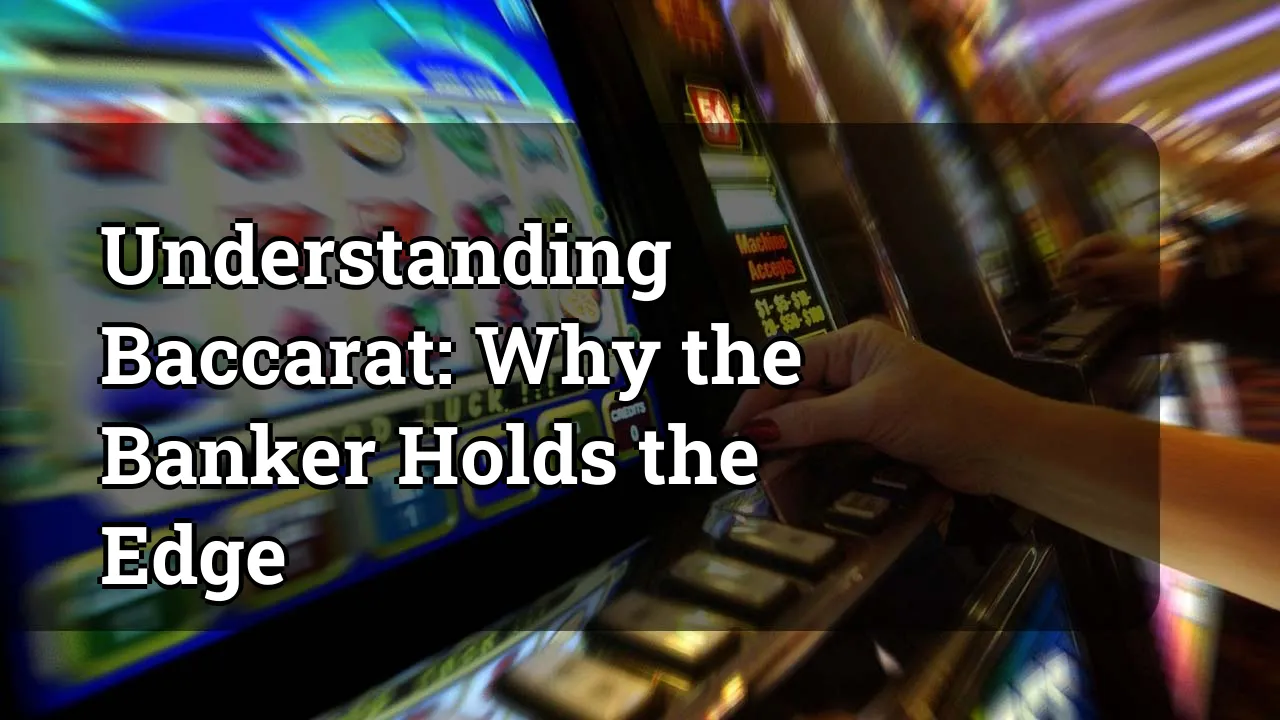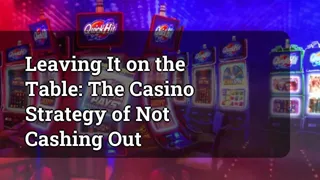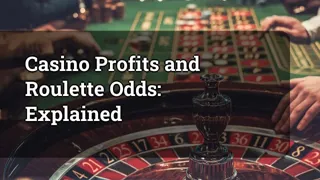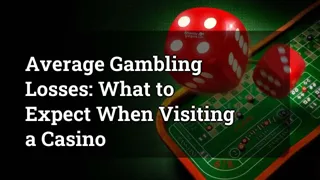Understanding Baccarat: Why the Banker Holds the Edge

Baccarat is a popular casino game that has been enjoyed by players for centuries. It is a simple and straightforward game that offers players the chance to win big. However, one thing that often puzzles players is why the banker seems to have an advantage in baccarat. In this article, we will explore the reasons behind the banker's edge in this classic card game.
The Rules of Baccarat
Before we delve into the reasons behind the banker's advantage, let's first understand the basic rules of baccarat. Baccarat is played with a standard deck of 52 cards. The objective of the game is to bet on the hand that will have a total closest to nine. The game involves two hands - the player's hand and the banker's hand. Players can choose to bet on either hand or on a tie.
Each hand is initially dealt two cards, and additional cards may be drawn based on the specific rules of the game. The value of the cards in baccarat is unique compared to other card games. The numbered cards from 2 to 9 are worth their face value, while the face cards and tens have no value. Aces are worth one point. If the total value of a hand exceeds nine, the second digit is taken as the hand's value. For example, a hand with a 7 and an 8 would have a total value of 5.
The Banker's Advantage
Now that we understand the rules of baccarat, let's explore why the banker has an advantage in this game. The first reason lies in the nature of the game itself. In baccarat, the house edge on the banker bet is slightly lower than on the player bet. The standard commission on winning banker bets is 5%, which means that the casino takes a 5% commission on the winnings. This commission is an indication of the banker's advantage.
Another reason why the banker holds the edge is the way the third card is dealt. The rules for drawing the third card in baccarat are predetermined and are not influenced by the decisions of the players. In most cases, if the player's hand has a total of 0-5, they will draw a third card. However, if the player stands, the banker's hand will be determined by the same set of rules.
These rules give the banker a slight statistical advantage as they have the advantage of knowing the player's hand before deciding whether to draw a third card or not. This advantage allows the banker to make more informed decisions and increases their chances of winning.
Strategies to Counter the Banker's Advantage
While the banker may have an edge in baccarat, there are strategies that players can employ to minimize their losses and increase their chances of winning. One popular strategy is the Martingale system, which involves doubling the bet after each loss. This strategy is based on the assumption that a win is inevitable and will recoup all previous losses. However, it is important to note that no strategy guarantees a win in baccarat, as it is ultimately a game of chance.
In conclusion, the banker's advantage in baccarat can be attributed to the lower house edge on the banker bet and the predetermined rules for drawing the third card. While the banker may have a statistical advantage, players can still employ strategies to improve their chances of winning. Whether you choose to bet on the banker or the player, remember to play responsibly and enjoy the excitement that baccarat offers.











